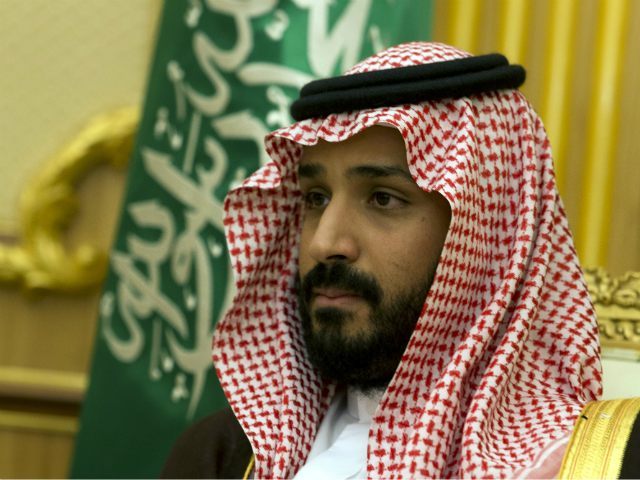Alleged leaked email correspondence between two former U.S. officials suggests that Saudi Crown Prince Mohammed bin Salman wishes to end the war in Yemen, two long and bloody years after it started.
The emails were obtained by a group called GlobalLeaks and provided to Middle East Eye, which describes them as a conversation between former U.S. Ambassador to Israel Martin Indyk and United Arab Emirates Ambassador Yousef Otaiba.
It should be noted that Middle East Eye has been criticized as an agent of influence for the Qatari government, which is currently involved in a bitter feud with Saudi Arabia. Several other sources have described these emails as authentic. Indyk declined to comment on the story to Middle East Eye but did not challenge the accuracy of the report.
The exchange allegedly took place about a month before Saudi Arabia and other Sunni Arab nations launched a diplomatic and economic campaign against Qatar, in part because Qatar was accused of undermining the war in Yemen.
During the alleged exchange with Otaiba, the email signed by Indyk described a meeting he and former U.S. national security adviser Stephen Hadley had with the 31-year-old Mohammed bin Salman, who is often referred to by his initials “MBS.”
Indyk said the Saudi Crown Prince was “quite clear with Steve Hadley and me that he wants out of Yemen and that he is OK with the US engaging Iran as long as it is co-ordinated in advance and the objectives are clear.”
The response allegedly signed by Otaiba recognized MBS as the most “pragmatic” leader Saudi Arabia was likely to have and encouraged taking advantage of the opportunity to engage with him.
According to Middle East Eye, bin Salman’s second thoughts about his “Operation Decisive Storm” in Yemen are based on more than weariness over the bloodshed, which has claimed over 10,000 lives so far. Evidently, the Saudi-led coalition in Yemen is fraying because the Saudi-supported exiled president of Yemen, Abd Rabbuh Mansour Hadi, parted ways with the crown prince of Abu Dhabi, Mohammed bin Zayed.
Zayed is now backing a different group of Yemeni forces against the Iran-supported Houthi insurgency, which might lead a pragmatic strategist like MBS to conclude Hadi is no longer the horse to back with Saudi blood and treasure. Furthermore, a plan conceived by the UAE to separate Yemen’s former dictator Ali Abdullah Saleh from his Houthi allies doesn’t seem to have gone anywhere after two years of effort, and U.S. officials are doubtful he would make a reliable ally.
It might be growing difficult for the Saudi crown prince to see a winning play in Yemen, whose degeneration into a humanitarian disaster currently battling a massive cholera outbreak, and teetering on the edge of widespread famine, is often blamed on the Saudi intervention. The latest news has Yemen accusing the Saudi coalition of blocking cash shipments “without justification or clear reason,” in an alleged effort to “strangle” the Yemeni economy. The coalition has been accused of everything from blocking humanitarian aid to starting the cholera epidemic on purpose.
The political costs of continued intervention are piling up, with little return on the investment apparent from a Saudi (or Emirati) perspective.
On the other hand, bin Salman met with members of the Yemeni House of Representatives – that is, the legitimate government ousted by the Houthis – on Tuesday, collecting their thanks for Saudi Arabia’s efforts on behalf of Yemen, including both military intervention and humanitarian aid. The Yemeni representatives denounced the Houthi coup and Iran’s “destructive ambitions” and expressed confidence the legitimate government could still be restored to power.
The emails linked to Middle East Eye purportedly contain a number of juicy details about Gulf State politics, including Otaiba’s assertions that the UAE is actually running the Sunni Arab show right now, not Saudi Arabia. He complains about the loss of U.S. support during the Obama administration’s realignment toward Iran and disengagement from the Middle East but also gripes that Oman and Turkey aren’t pulling their weight either.
The UAE ambassador does, however, seem to sincerely admire Mohammed bin Salman. His appreciation for MBS’s pragmatism will be put to the test if the Saudis really do start looking for an exit strategy from Yemen.

COMMENTS
Please let us know if you're having issues with commenting.